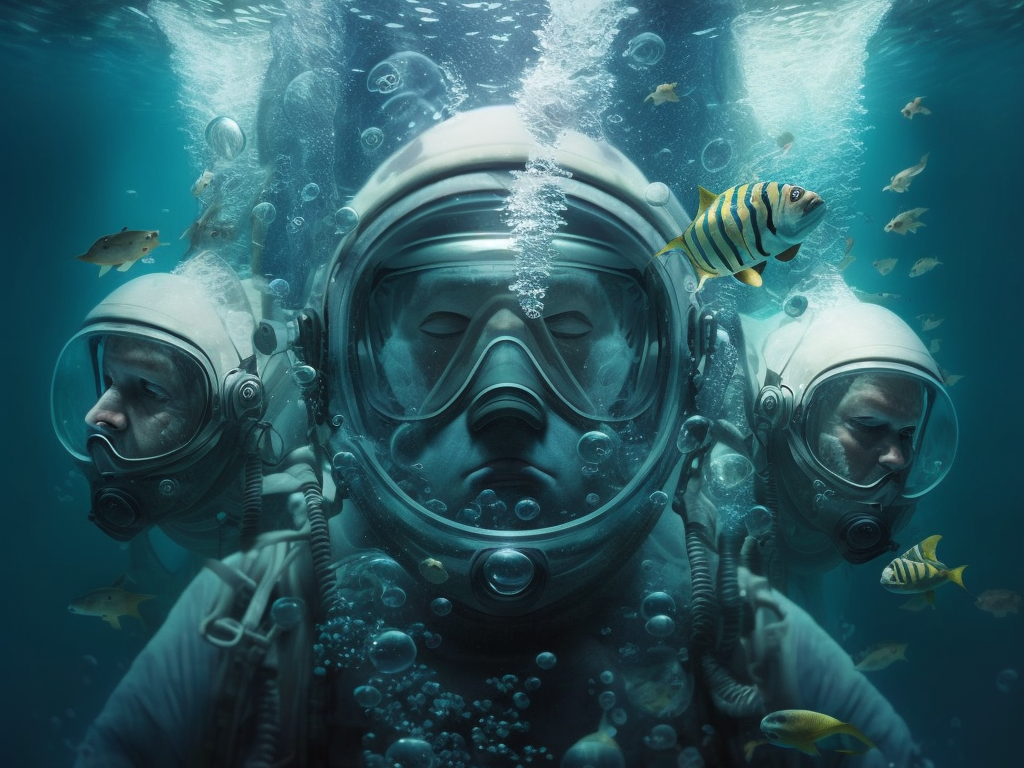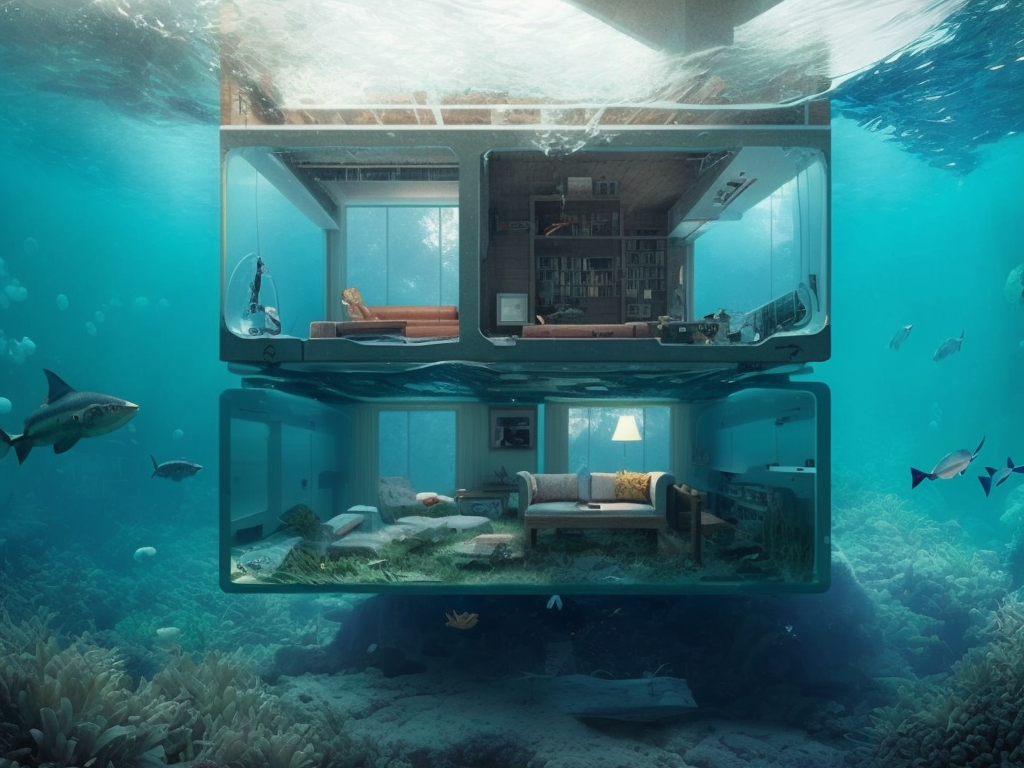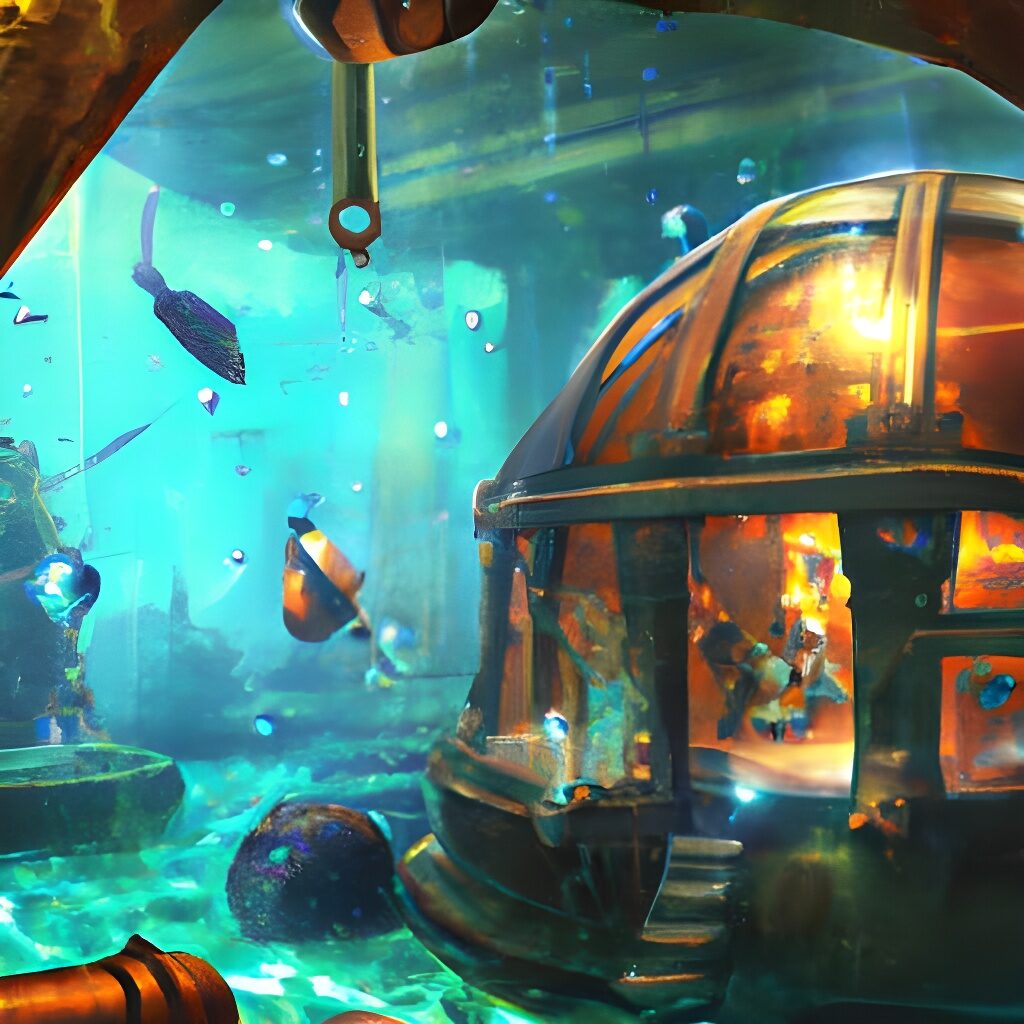The possibility of underwater living is an intriguing concept that has been explored in science fiction literature and movies for decades. However, is it feasible to create a society where humans live entirely underwater? So, if you are ready to dive into the world of underwater living and discover what it could mean for the future of humanity then join us on this exciting journey. In this blog, we will explore the scientific and technological advancements that would be required to make such a society possible and we will explore the possibilities and challenges of living under water.
Underwater Living – “The Challenges”

Before we delve into the possibilities, it is important to understand the challenges that would need to be addressed to create an underwater society.
1. Oxygen
The first and most obvious challenge is the issue of oxygen. Humans need oxygen to survive, and underwater, there is not enough of it for us to breathe. This means that any underwater society would need a constant supply of oxygen to sustain human life.
2. Water Pressure
One more obstacle to underwater exploration is the heightened water pressure that increases as we delve deeper into the ocean, putting humans at risk. Therefore, we need to devise techniques to construct structures that can tolerate the water pressure, and we also need to develop equipment that enables us to safely navigate and explore underwater without any adverse effects on our health caused by pressure.
3. Food Production
Another major hurdle for underwater societies is food production. Since the majority of our food comes from terrestrial sources, it would be arduous to cultivate crops or rear animals underwater. Consequently, any underwater community would have to discover a sustainable method of producing food in this novel environment
Underwater Living – “The Possibilities”

There are several technologies and innovations that could make an underwater society possible. Here are some of the possibilities:
1. Underwater habitats
One way to create an underwater society would be to build underwater habitats. These would be structures that could withstand the pressure of the water and provide a safe environment for humans to live in. These habitats would need to be equipped with all the necessary facilities, including oxygen generation systems, waste disposal systems, and temperature control systems.
2. Oxygen generation
Another possibility is to create technologies that can generate oxygen underwater. There are already devices that can extract oxygen from water, such as electrolysis systems that split water molecules into hydrogen and oxygen. However, these systems are not yet efficient enough to sustain human life on a large scale. Scientists would need to develop new technologies that can generate oxygen in a more efficient and cost-effective way.
3. Aquaponics
One solution to the food problem could be aquaponics. Aquaponics is a sustainable farming method that combines aquaculture (raising fish) with hydroponics (growing plants without soil). In an aquaponics system, the waste produced by the fish is used as fertilizer for the plants, and the plants, in turn, clean the water for the fish. This could be an ideal way to produce food in an underwater society.
4. Underwater transportation
To move around underwater, we would need transportation systems that can operate in this environment. This could include underwater vehicles, submarines, or even personal underwater propulsion systems. These technologies would need to be safe, reliable, and efficient to transport people and goods between different underwater habitats and locations.
Underwater Living – “The Advantages”
Living under water has several advantages that make it an attractive option for those interested in exploring this concept. Some of the benefits include:
1. Protection from Natural Disasters
Living under water would provide protection from natural disasters such as hurricanes, tornadoes, and earthquakes. The underwater environment would be less affected by these events, and people living there would be safe from harm.
2. Reduced Pollution
Pollution is a significant problem in many parts of the world. Living under water would provide an opportunity to reduce pollution levels as underwater environments are generally cleaner and less polluted.
3. Greater Exploration Opportunities
The underwater world is largely unexplored, and there is much to discover. Living under water would provide a unique opportunity to explore this vast and fascinating world.
4. Lower Energy Consumption
Living under water could also lead to lower energy consumption. The constant temperature and pressure of the water can be harnessed to provide a stable environment for living and working, reducing the need for artificial heating, cooling, and lighting.
Underwater Living – “The Disadvantages “
While the advantages of living under water are attractive, there are also several disadvantages to consider. Some of them include:
1. Cost
Building and maintaining underwater structures would be extremely expensive. It would require significant investment in infrastructure, including underwater power grids, water filtration systems, and waste management systems.
2. Lack of Sunlight
Sunlight is necessary for photosynthesis and for maintaining human health. Living under water would mean reduced exposure to sunlight, which could have adverse effects on human health.
3. Communication
Communication is a vital part of human interaction, but living under water would present significant communication challenges. Underwater communication is limited, and people would need to rely on technology to communicate effectively.
4. Limited Space
Living under water would also mean limited space. The underwater environment is vast, but there are limits to how much space can be developed for human habitation.
5. Access to Resources
Living under water would require access to resources such as food and water. While the ocean is a vast resource, it would require significant investment in technology to harvest these resources effectively.
Underwater Human Life – The Conclusion

In conclusion, the concept of living underwater is an intriguing idea that has captured the imaginations of many for decades. While there are certainly challenges to overcome, such as the issue of oxygen supply, water pressure, and food production, there are also many possibilities and advantages to living under water, including protection from natural disasters, reduced pollution, greater exploration opportunities, and lower energy consumption. With advancements in technology and innovation, it may be possible for us to create an underwater society in the future, but it will require significant investment and collaboration from scientists, engineers, and policymakers. It may take many years, but who knows what the future may hold, and what wonders we might discover beneath the waves. The exploration and development of underwater living are an exciting journey, and we look forward to seeing what the future holds for this concept. It may take many years, but who knows what the future may hold, and what wonders we might discover beneath the waves.
If you want to gain further knowledge about it, you can purchase the recommended book
